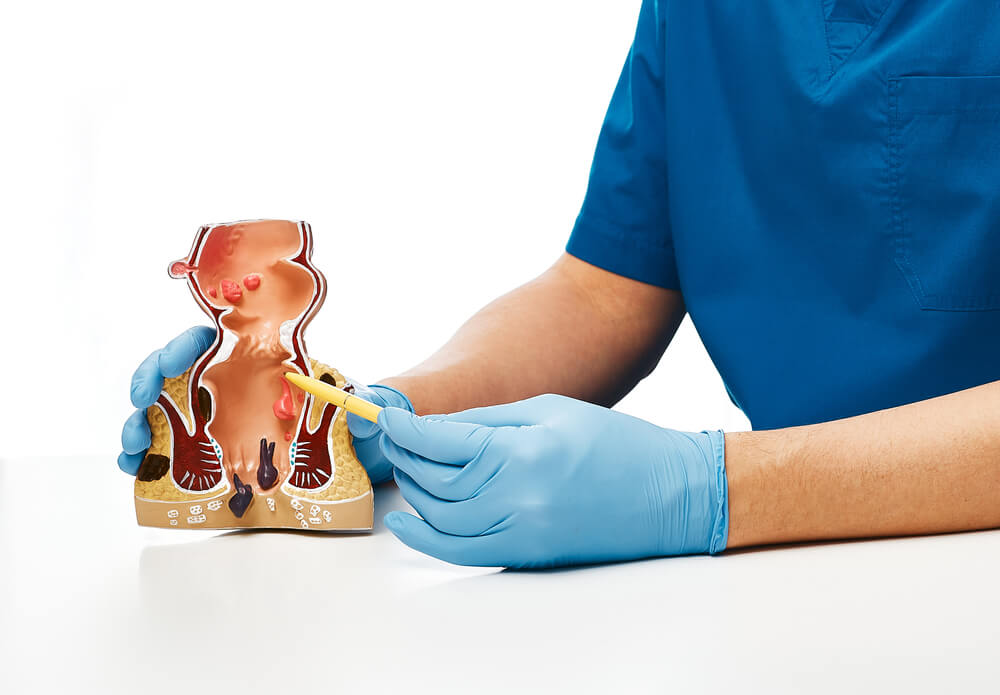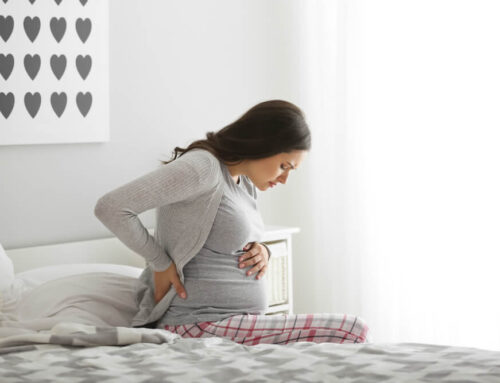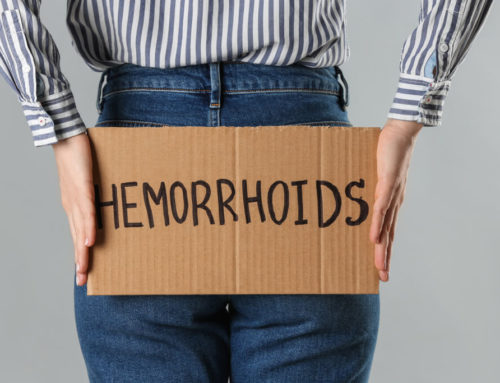Prolapsed hemorrhoids, a condition where swollen veins protrude outside the rectum, can be a source of discomfort. Understanding prolapsed hemorrhoid symptoms and available treatments is crucial. This interesting informative article explores the journey from symptoms to surgical solutions, ensuring you are well-informed on prolapsed hemorrhoids and their management.
There are different options offered as hemorrhoid treatment in Wellington, FL, so your task is to do thorough research and choose an option most suitable for your particular condition and needs. Clinical centers such as Advanced Surgical Physicians offer not only premium equipment and expert staff but also the best possible patient care and guidance throughout the whole treatment process.
What Are Prolapsed Hemorrhoids?
Prolapsed hemorrhoids are a common and often painful condition that occurs when the blood vessels in the rectal area become swollen and extend beyond the anal opening. These enlarged veins can protrude externally, leading to a range of uncomfortable symptoms. The primary cause is increased pressure in the lower rectum, often resulting from straining during bowel movements, obesity, or pregnancy.
Prolapsed hemorrhoids can manifest in various degrees, with mild cases causing minimal discomfort and more severe instances resulting in a noticeable protrusion outside the body. Common prolapsed hemorrhoid symptoms include rectal bleeding, itching, and a sensation of incomplete bowel movements. Recognizing the signs of prolapsed hemorrhoids is crucial for seeking timely medical intervention and exploring appropriate prolapsed hemorrhoid treatment options.
Prolapsed Hemorrhoids Symptoms
As mentioned, different symptoms can signal this condition, so here is a comprehensive list of the most common symptoms:
- Rectal Bleeding: One of the most common symptoms of prolapsed hemorrhoids is the presence of bright red blood during or after bowel movements.
- Protruding Mass: Prolapsed hemorrhoids may cause a soft, fleshy lump to protrude outside the anal opening. This can be felt or observed during bowel movements.
- Discomfort and Pain: Individuals with prolapsed hemorrhoids often experience discomfort, pain, or a feeling of fullness during bowel movements.
- Itching and Irritation: The swollen and protruding veins can cause itching and irritation in the anal region, leading to persistent discomfort.
- Inflammation and Swelling: Prolapsed hemorrhoids can result in the inflammation and swelling of the affected area, contributing to discomfort and sensitivity.
- Mucous Discharge: Some individuals may notice mucous discharge from the rectum, which can be a result of the irritation caused by prolapsed hemorrhoids.
- Difficulty Cleaning After Bowel Movements: The presence of prolapsed hemorrhoids often make the cleaning of the anal area thoroughly after bowel movements quite challenging, contributing to hygiene concerns.
- Sensation of Incomplete Bowel Movements: Individuals with prolapsed hemorrhoids may experience a persistent feeling of not fully emptying their bowels after a bowel movement.
- Painful Sitting: Prolapsed hemorrhoids can cause discomfort and pain, especially when sitting for extended periods, making daily activities challenging.
- Blood Clots or Thrombosis: In more severe cases, prolapsed hemorrhoids may lead to the formation of blood clots (thrombosis), causing increased pain and swelling in the affected area.
It is important to note that experiencing one or more of these symptoms may indicate the presence of prolapsed hemorrhoids, and seeking prompt medical attention is advisable for proper diagnosis and appropriate management.
Diagnosing Prolapsed Hemorrhoids
Diagnosing prolapsed hemorrhoids involves a comprehensive assessment by a healthcare professional to accurately identify the condition and determine the appropriate course of action. Typically, a diagnosis begins with a detailed discussion of the patient’s medical history and a thorough physical examination. During the examination, the healthcare provider may visually inspect the anal and rectal area for signs of hemorrhoids, including any external protrusions.
In some cases, additional diagnostic procedures, such as a digital rectal examination or anoscopy, may be performed to provide a closer look at the affected area. These examinations help confirm the presence of prolapsed hemorrhoids and assess their severity. While the symptoms themselves are indicative, a proper diagnosis is crucial to rule out other potential causes of similar symptoms.
Seeking the expertise of a healthcare professional ensures an accurate assessment, allowing for tailored and effective treatment options based on individual circumstances.
Conservative Prolapsed Hemorrhoid Treatments
Mild cases of prolapsed hemorrhoids can often be managed with conservative treatments. These may include:
- Dietary Changes: Adjusting your diet is a fundamental conservative approach for managing prolapsed hemorrhoids. Increasing the intake of foods that contain fiber such as vegetables, fruits, whole grains, etc. helps with stool softening, making it easier to pass and reducing the strain on hemorrhoids during bowel movements.
- Topical Treatments: Over-the-counter ointments, creams, or suppositories that contain ingredients like hydrocortisone can provide relief from itching and inflammation associated with prolapsed hemorrhoids. These topical treatments are applied directly to the affected area and can offer temporary symptomatic relief.
- Warm Baths (Sitz Baths): Soaking in warm water, commonly referred to as sitz baths, can help alleviate discomfort and reduce inflammation associated with prolapsed hemorrhoids. This simple and soothing measure can be done at home and is particularly effective after bowel movements.
- Hydration and Lifestyle Modifications: Staying well-hydrated is essential for maintaining soft and bulkier stools, promoting easier bowel movements. Additionally, adopting a healthy lifestyle by incorporating regular physical activity can improve overall bowel function and contribute to the prevention of hemorrhoidal symptoms.
- Over-the-counter medication: Pain relievers that do not need a prescription, such as nonsteroidal anti-inflammatory drugs (NSAIDs) like ibuprofen or acetaminophen, can aid in pain management and discomfort associated with prolapsed hemorrhoids. However, it’s important to use these medications under the guidance of a healthcare professional to avoid potential side effects.
While these conservative treatments can be effective in managing mild to moderate cases of prolapsed hemorrhoids, it is crucial to consult with a healthcare provider for personalized advice. If symptoms persist or worsen, or if there’s uncertainty about the diagnosis, seeking professional medical guidance is essential to explore further treatment options.
Prolapsed Hemorrhoids Surgery
When conservative measures fall short, surgical intervention may be necessary. Prolapsed hemorrhoid surgery aims to address the underlying issues causing the protrusion. There are various surgical options available, each with its benefits and considerations:
- Rubber Band Ligation: During this process, a small rubber band is placed on the base of hemorrhoid, cutting off its blood supply, and causing it to shrink and fall off.
- Hemorrhoidectomy: In more severe cases, a hemorrhoidectomy may be recommended, wherein the surgeon removes the excess tissue causing the prolapse.
- Stapled Hemorrhoidopexy: This procedure involves stapling the prolapsed hemorrhoid back into its normal position, reducing blood flow and promoting healing.
Recovery and Postoperative Care
Recovery after prolapsed hemorrhoid surgery is a crucial phase. Patients need to follow postoperative care instructions diligently to ensure a smooth recovery and minimize the risk of complications.
Lifestyle Changes for Long-Term Management
Regardless of the chosen treatment option, adopting a healthy lifestyle is key to preventing the recurrence of prolapsed hemorrhoids. This includes maintaining a high-fiber diet, staying hydrated, and engaging in regular physical activity.
Visit Us!
Navigating prolapsed hemorrhoids involves understanding the symptoms, exploring various treatment options, and making informed decisions based on individual circumstances.
Whether opting for conservative measures or surgical intervention, the goal is to alleviate discomfort and enhance overall quality of life. Stay informed, consult with healthcare professionals, and take proactive steps for optimal hemorrhoid management by calling our medical center and scheduling an appointment. This can help you prevent and cure the condition, so do not hesitate, call us!







